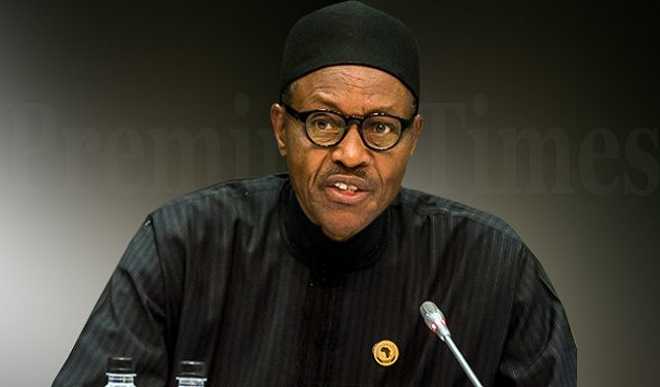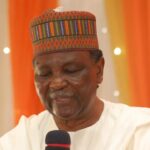
It was assuring to see President Muhamadu Buhari stand shoulder to shoulder with Nigeria’s female Basketball team, D’Tigress, as he celebrated with them their winning of the Afribasket tournament trophy. That is just as his erect and agile gait during his arrival at his hometown Daura for the Sallah break belied the flood of spurious tales about his purported incapacitation even after his hospital stay in London. Yet the news about the President goes beyond his assuring look, and includes a string of circumstances like his pass mark on the economy. After a meeting with members of his cabinet, Buhari gave a positive rating to the economy under his watch.
Interestingly his appraisal of the economy after his return to office from hospital coincides with the half term mark of his present tenure and commencement of its second half. It is therefore not premature to assist the President with a few ‘unofficial’, insights into the truth about life on the streets of Nigeria. After all it is not unfounded that often, Presidency handlers may cite the dictates of state protocol and shield their principals from the epicentres of critical issues and circumstances, thereby leaving the beneficiary of their ‘care’, bereft of the full complement of facts about a designated matter.
For instance, in the on-going crisis of apocalyptic dimension flooding in the oil city of Houston in Texas United States, even President Donald Trump was only allowed to access less critical areas during his visit to see the disaster zone. If the US with all its endowments and wonders can designate no-go areas for its President on a seeing-is-believing tour of a disaster zone, who will blame Presidency handlers in Nigeria for ‘protecting’ the President from equally ‘dangerous’ tales of life on Nigerian streets – many of which are veritable danger zones already?
The truth is that often the country’s leaders may actually be working on pictures that are either far from reality, or at best poor reading of the truth, the whole truth and nothing but the truth about the country. That is why the President needs to expand his gaze on the country beyond official briefings that are often not only at variance with the public perception but also generate anger in sections of the latter. For if the truth is to be told, Nigerians are angry with the present administration to the extent that a legion of indictments of the past officers in government no longer has the desired effect of demonising and criminalising such as the causative factors of the present pains of the citizenry.
In any case, even as the circumstances of ill health and hospitalisation might have largely eclipsed a fair narrative of the successes of the first half of Buhari’s first term, governance in Nigeria between the period under consideration recorded significant progress in the country – even with mixed outcomes. While an eclectic mention of them would lead to an endless list, it is still undeniable that Buhari came, saw, and conquered in many respects.
Meanwhile, just as much of the efforts of the Buhari administration and associated dividends fall within the realm of remediation of past failures in the nation’s public life such as endemic corruption, and insurgency, such along with the goal of growing the economy constitute the core features of the administration’s agenda; hence they fall in tow with the expectations of the Nigerian public that voted it into office. However at half way into its tenure, the exigencies of the time – especially the unending lament of the people down below, dictate a change in direction and pace by the administration with respect to growing the country’s economy. If the truth is to be told, the typical Nigerian pidgin parlance of “na wetin we go chop?” accentuates the reductionist yardstick with which Nigerians judge any administration, no matter its popularity at the point of inception. And Buhari’s cannot be an exception.
Besides, while the drama associated with the political terrain can often claim more attention in the reckoning of politicians, the ultimate success or failure of any administration usually lies in the terrain of the economy. As the provider for every citizen from cradle to grave, people usually see the economy not from the self justifying angel of government officials but from its pinch on their pockets and stomachs. And for Nigerians the Buhari administration is pinching their pockets and stomachs in a manner that really hurts.
Hence, in support of Buhari, let it be stated here and now that the most topical issue among Nigerians on the streets today, is how to reverse the situation whereby this country is still tied to the apron strings of the more economically advantaged nations, to the detriment of indigenous enterprise – the endlessly hustling Nigerians, even as the same handicapped people drive over 90% of the economy. With the serial failure of many government policies, the impression needs to be corrected that the mainstream of policy makers understand the country they are privileged to administer. This is especially so when with over 150 million telephone lines and a tele-density of 110.8%, as well as internet penetration of over 28% in the country, Nigerians of today are no more as ignorant of global trends as many actors in government may by their actions, be assuming. Little wonder then that most of the time there is a glaring disconnect between the claims of government and public take on such.
An instance is the present fixation of the government on seemingly cheap funds in form of aid, grants and loans from China with its expansionist aspirations, to drive economic development in Nigeria, and to the exclusion of local enterprise. A concern over the alliance of the Nigerian government with the good people of China should ordinarily not attract any untoward concern, if not for the fact that Nigerians are yet to see any significant transfer of technology from that country down here. Hence they judge with the painful lessons of history whereby the same syndrome of economic dependence on foreign green fields, which stalled meaningful economic development and self-sufficiency progress, courtesy of a jaundiced dalliance with the Western world in the past, is recurring, only with the Chinese on the stage this time round. As it always is, even if Chinese loans and handouts may seem cheaper for now, they always come with a price. After all is it not the same Chinese who in a popular proverb said that “when you give a man a fish to eat you feed him for one day. But when you teach him how to fish you feed him for a thousand years”.
This is why the Buhari administration needs to up its game with respect to the economy, and with a view to end the second half of this tenure on a high note. And hardly is there any other comfort for it than adopting a single item agenda: which is increasing domestic productivity at the grass roots. If the Nigerian economy is billed to grow, such can only be driven through the transformation of our hamlets, villages and rural terrain in general, ostensibly under the auspices of a transformed local government administrative structure. This is clearly of more utility than can ever be garnered from the extant constellation of city – based glorified assembly plants that parade themselves as Nigerian factories.
Meanwhile, available evidence indicates that the various governments at the federal and state levels who call the shots even for the local areas are yet to look in that direction. In most instances of intervention by states in local government areas under their purview, the focus is usually on dispensing gifts in cash and kind to designated beneficiary potentates, who in turn share such among themselves and their cronies leaving nothing for regenerating the local economy. For instance it was recently reported that the governor of a South Eastern state recently doled out the sum of N200 million to each of the local government areas in the state for projects of the latter’s choice. How such a disbursement shall end up as anything beyond pocket money for its managers is any body’s guess.
The situation demands more than a passing concern by the federal government in the economic wellbeing of local governments. If Buhari can within his remaining days in office, address himself to re-orienting the country’s rural areas into viable hubs of industrial level business activities that utilize local resources and labour, he would have achieved the change he and his fellow Nigerians have been craving for since time immemorial.

 Join Daily Trust WhatsApp Community For Quick Access To News and Happenings Around You.
Join Daily Trust WhatsApp Community For Quick Access To News and Happenings Around You.


